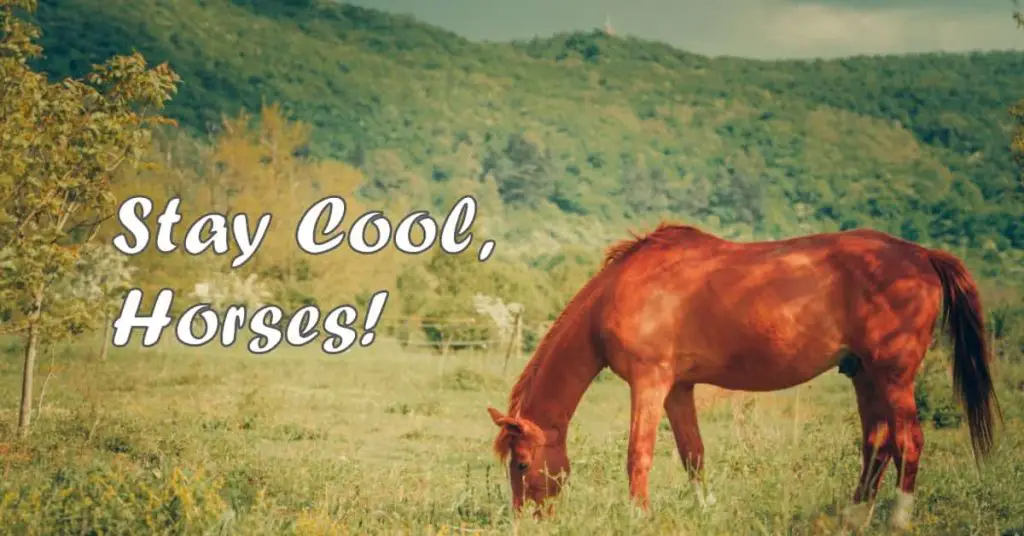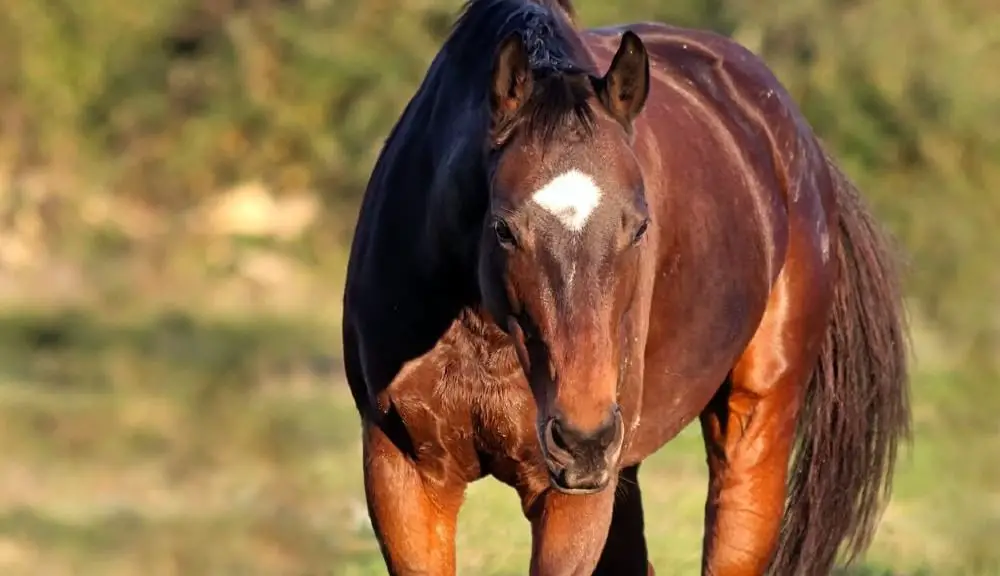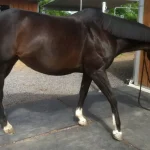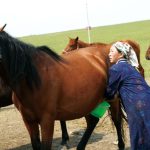Horses can tolerate high temperatures, but the optimal temperature for their comfort is between 40-75 degrees Fahrenheit.
When temperatures rise above that range, horses may become uncomfortable and need additional care to cope with the heat. Heat stress can occur in horses when temperatures reach 85-95 degrees Fahrenheit or higher.
Signs of heat stress include excessive panting and increased heart rate. Appropriate measures should ensure a horse’s safety during hot weather, such as providing shade, access to cool water, and restricting exercise to cooler times of day.
Keeping an eye on your horse’s behaviour can help you recognize signs of discomfort so that you can take action before any serious health issues arise from overheating.
Horses are able to tolerate a wide range of temperatures, but their optimal temperature is between 20 and 25 degrees Celsius. While horses may be able to withstand very hot weather for short periods without any ill effects, prolonged exposure can cause them distress and even serious health problems.
It’s important to provide plenty of shade and fresh water when the weather is particularly warm, as well as make sure that they have access to cooling fans or sprays if necessary.
With proper care and attention during hot weather, horses can remain healthy despite extreme temperatures.
Should You Hose a Horse in Hot Weather
In hot weather, it is important to take extra caution when hosing your horse. Hosing down your horse in the heat can cause them to become overheated and exhausted, so it’s best only to hose them off if they have been working hard or are covered in mud or sweat.
If you do choose to hose down your horse on a hot day, make sure that the water is not too cold, as this could shock their system and lead to health issues.
Additionally, be mindful of how long you’re hosting them; no more than 10 minutes at most should be sufficient.

What Temp is Bad for Horses?
When it comes to what temperature is bad for horses, the answer can vary depending on various factors. Generally speaking, temperatures that exceed 90°F (32°C) are too hot for most horses and can put them at risk of heat exhaustion and dehydration.
In colder weather, temperatures below 32°F (0°C) have been known to cause hypothermia in some horses if they don’t have appropriate shelter or blankets.
It’s also important to consider humidity levels when determining what temperature range is safe for your horse; high humidity combined with lower temperatures may become dangerous more quickly than expected.
Ultimately, being aware of the conditions outside and providing your horse with additional protection, such as shade or blankets during extreme weather will help ensure their safety and well-being.
Preventing Heat Stroke in Horses
Heat stroke is a serious risk for horses in very hot weather. Warning signs of heat stroke include extremely elevated body temperature (105°F or higher), rapid breathing, increased heart rate, and weakness or collapse.
If a horse shows these symptoms during hot weather, immediate action should be taken to cool them down. Spraying with cool water, offering icy drinks, and getting them to shade are important first steps. Calling a veterinarian is also recommended, as heat stroke can quickly become life-threatening without proper treatment.
Being proactive about prevention by providing ample shade, ventilation, and water can help reduce the risk of heat stroke on hot days.
Importance of Adequate Ventilation
Proper ventilation is important for horses in hot conditions. Stagnant air in a barn or stable holds heat and prevents cooling through the evaporation of sweat and moisture. Installing fans or opening doors and windows can improve airflow and allow hot air to escape.
Well-ventilated shelters and barns help create a cooler environment for horses during the summer heat. Good ventilation, coupled with shade and plentiful water, will help keep horses comfortable on hot, humid days.
Grooming Considerations in Hot Weather
Grooming helps horses stay cool, but some precautions should be taken in hot weather. Sweat and dirt can accumulate on horses’ coats and skin, so grooming is still beneficial.
However, avoid using metal curry combs that warm up quickly in the sun. Use brushes and combs that stay cool. Bathe horses before temperatures peak for the day and scrape excess water off instead of vigorously towelling.
The evaporation of water from their coat will provide a natural cooling effect. Target grooming to areas most prone to sweating, like the saddle and girth area. Appropriate grooming helps maximize a horse’s ability to stay comfortable in the heat.
Do Horses Need Shade on Hot Days?
On hot summer days, horses need shade to protect them from the harsh sun and extreme temperatures. Without adequate shade, horses can suffer heat exhaustion or even death due to elevated body temperatures. Horses normally seek shelter from the sun in open fields or pastures with trees that provide relief from direct sunlight and heat.
Additionally, providing your horse with some type of man-made shelter, such as a run-in shed, is an effective way to give your horse a break on hot days. Having an area where they can escape the oppressive summer heat will ensure their health and safety when the thermometer rises.
Ensure you always provide plenty of fresh water for your horse during warm weather so he does not become dehydrated–water intake should be increased slightly when it’s hot outside, but do not overdo it!
Red Dead Redemption 2 – 7 Things You NEED to Know About Your Horse
Conclusion
In conclusion, it is important to remember that horses can get heat-stressed at temperatures just above the normal range. It is, therefore, essential to provide adequate shade and access to fresh water when temperatures rise, as well as to ensure your horse isn’t overworked in hot conditions.
Ultimately, with proper management and care, you can rest assured that your horse will be able to handle the summer heat safely.
Janet G Kulick is an experienced horse rider, trainer, and owner of the informative horse blog, Horseray.com. Her engaging writing style and wealth of knowledge on horse care, riding, and training make her a trusted source for horse enthusiasts worldwide.






